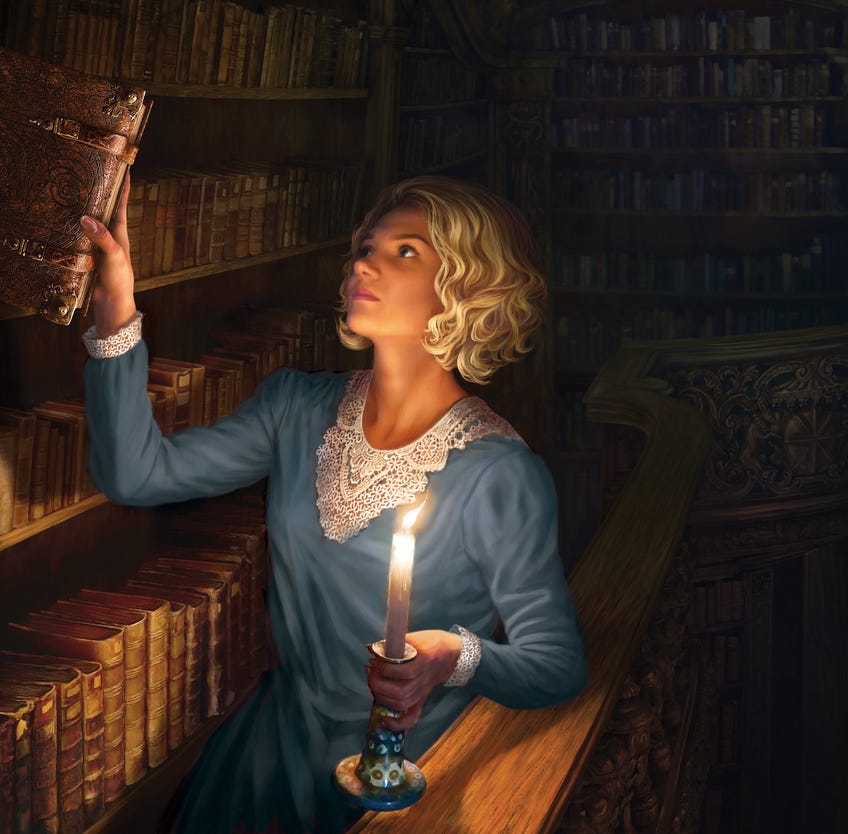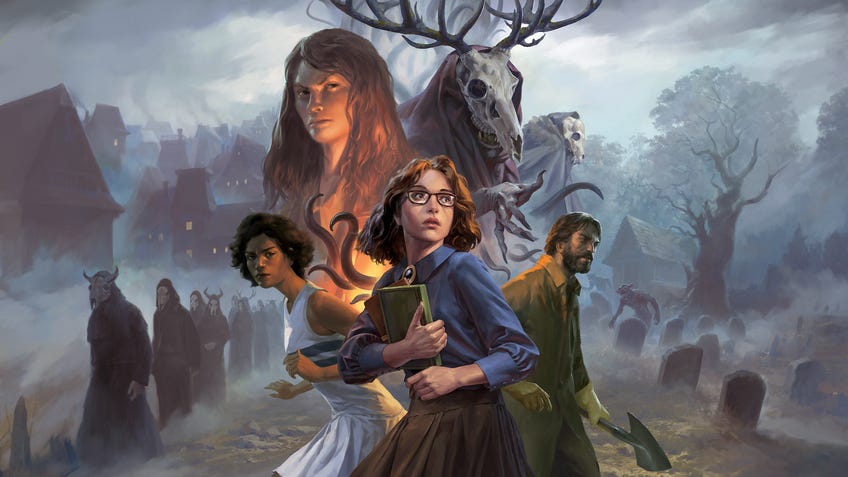The Arkham Horror Files RPG needs to take risks, like the franchise always has
Investigators meets innovation.
The announcement of a tabletop RPG set in the Arkham Horror Files universe arrived earlier this month, alongside a collage of mixed feelings. Whilst the world isn’t begging for a roleplaying game based on the horror franchise, it could be genuinely great if its creators are willing to take some risks.
The Arkham Horror Files is unique in the tabletop gaming industry for basically being one of a kind - in that it is the closest thing we have to a cinematic universe. Featuring titles such as Arkham Horror: Third Edition, Eldritch Horror, Mansions of Madness: Second Edition and Arkham Horror: The Card Game, the Arkham Horror Files is a collection of tabletop games that all take place within the same fictional universe.
The Arkham Horror Files is still nowhere near as recognisable a universe as the Marvel comic book universe or Alien.
Though the types of tabletop games vary throughout the Arkham Horror Files, from the co-op miniature gameplay of Mansions of Madness: Second Edition to the quick dice-rolling of Elder Sign, they all share elements of narrative and tone that remain consistent between each game. Rather than just being games that take inspiration from the Cthulhu Mythos, entries in the Arkham Horror Files universe often feature a recurring cast of characters that will pop up in multiple games: such as Akachi Onyele, a Shaman who appears in Arkham Horror: The Card Game and Eldritch Horror, or the explorer Monterey Jack - who has been included in Arkham Horror: Second Edition and Mansions of Madness: Second Edition.
Besides recurring characters, games in the Arkham Horror Files collection have other shared aspects such as an emphasis on narrative - regardless of whether it’s a shorter title like Elder Sign or a much longer one, such as Eldritch Horror - and a similarly bleak tone designed to prepare players for the worst, as well as imbue playthroughs with that signature cosmic horror flavour the Cthulhu Mythos is famous for.
Though creating more games for an existing franchise might seem like the safest move possible in today’s climate, the situation is a little different when it comes to the tabletop. The Arkham Horror Files, despite the number of popular titles in its franchise, is still nowhere near as recognisable a universe as the Marvel comic book universe or Alien - both of which have their own tabletop roleplaying games now. Which is why the better approach to this upcoming RPG would be to provide something unique rather than rely wholly upon name-recognition.
The worst thing that could happen with the horror RPG is that it relies too heavily on the Arkham Horror Files brand.
It’s not like other entries in the Arkham Horror Files universe haven’t taken risks, far from it. When the original Arkham Horror (1987) was acquired by Fantasy Flight Games - the current publisher behind titles in the Arkham Horror Files collection - it was re-released in 2005 as roughly the same game, albeit with a new coat of paint. However, in 2018 a third edition of the horror board game was published, this time offering an entirely new approach to the Arkham Horror formula: one that more closely resembles 2013’s Eldritch Horror, solidifying it as Fantasy Flight’s own take rather than simply an updated version of the original Chaosium game.

Fantasy Flight has messed about with previous versions of its own original board games too. The first edition of Mansions of Madness requires a player to take the role of a games master, performing all the admin necessary for the other players. In 2016, Mansions of Madness: Second Edition released with one significant change from the original: it no longer needed a player to take the role of GM. Instead, Mansions of Madness: Second Edition has players downloading a companion app that they can use to handle all the administrative stuff required for the game, thereby leaving all players free to explore the terrors of the mansion themselves.
Both of these changes had the potential to seriously piss off the fans of the previous editions and cause their player base to lose interest in the series. However, by taking these risks with both Arkham Horror: Third Edition and Mansions of Madness: Second Edition, the two titles have managed to stay relevant within the tabletop gaming community and maybe even attract entirely new players by offering a more accessible experience than the older versions.
Fantasy Flight should take this opportunity to create a horror TRPG imbued with all the best bits from previous Arkham Horror Files’ games.
This is why I’m hoping that Fantasy Flight may be willing to take some risks with the Arkham Horror Files roleplaying game. The worst thing that could happen with the horror RPG is that it relies too heavily on the Arkham Horror Files brand and ends up fading into the shadows of TRPGs with more recognisable names. Call of Cthulhu is a tabletop roleplaying game that continues to be played to this day, despite being over 40 years old by this point. There isn’t a definitive reason as to why Call of Cthulhu has survived where other older RPGs have failed, but its gameplay mechanics - which do a fantastic job of building atmosphere and emphasising survival horror - have certainly helped it stand out amongst other roleplaying games.
The Arkham Horror Files RPG is in the unique position of being a horror tabletop roleplaying game made by a publisher with a substantial history of releasing horror games. Fantasy Flight should take this opportunity to create a horror TRPG imbued with all the best bits from previous Arkham Horror Files’ games: namely the punishing challenge and the potential for terrible things to suddenly and violently happen to your characters. It’s already a good sign that the upcoming RPG is not using D&D 5E, but it would be brilliant to see the Arkham Horror Files RPG apply some more unusual gameplay elements.
From Call of Cthulhu, to Dread, to the Alien RPG - horror roleplaying games have a history of playing around with gameplay mechanics in order to take advantage of being deliberate anti-power trips. I sincerely hope that the Arkham Horror Files RPG does something similar, otherwise I fear it may become just another roleplaying game left to fade into obscurity.


